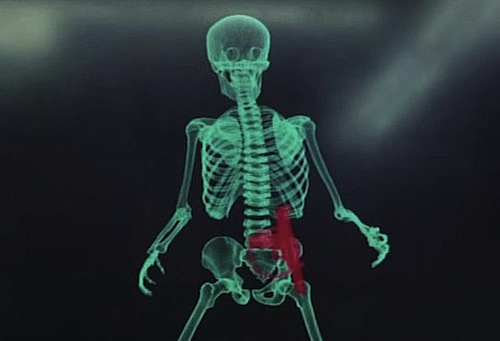I don’t know about you, but when I lined up for air travel this Thanksgiving, I expected the Transportation Security Administration to use lasers to look at my penis. At least, I thought giddily as I watched an old man at Missoula International Airport attempt to use his library card as identification, I will get an invasive pat-down. Imagine my disappointment, then, when all I had to do was listen to an extremely passive-aggressive lady scold me about the size of my toothpaste tube.* I had been led to believe that this was a big deal. I was told there would be x-ray screens. I was under the impression that this stuff was news, and my disappointment—at least in an impersonal, we-are-all-disappointed-now way—is the subject of this insightful article in yesterday’s Times. Invasive pat-downs to Mike for the link.
I had been led to believe that this was a big deal. I was told there would be x-ray screens. I was under the impression that this stuff was news, and my disappointment—at least in an impersonal, we-are-all-disappointed-now way—is the subject of this insightful article in yesterday’s Times. Invasive pat-downs to Mike for the link.
David Carr traces the development of the story to a video that first appeared on Drudge Report on November 13th. More followed, including the now infamous—and way too absurd to be that simple—video of a TSA officer patting down a shirtless child. Now we’re into some good civil liberties rage, right here. On Monday and Tuesday of last week, 60 million Google queries asked about the new TSA regulations. Hillary Clinton remarked that she would avoid a pat-down if she could, causing her husband to half-heartedly grab her breast without looking away from football. And cable news lost its damn mind, per usual.
“This story tapped right into the central nervous system of the collective consciousness,” Mark Ghuneim told Carr. “It was huge.” Ghuneim is the chief executive of a company called Trendrr, which A) measures social media traffic and B) explains why he calls the Collective Unconscious our “collective consciousness.” In this case, our collective consciousness did a terrifyingly good job of resembling actual experience.
Consider, for a moment, how you are aware of events at the airport. Unless you went there today, you must rely on the reports of others, and chances are those others are not people you know personally. Rather than going to the trouble of befriending a baggage handler, most of us have delegated our events-describing needs to third parties. In the medieval village that is our national community, Anderson Cooper is the gossipy washerwoman.
The difference between this and more organic systems of information acquisition, of course, is that we don’t know Anderson Cooper. Thus are we forced to name a new category of information: news. Whereas information like “I saw somebody trying to break into your car” is significant to us personally and therefore implicitly involves an evaluation of our relationship with its source—how do you react to this information when it comes from your roommate, as opposed to when a homeless guy tells you?—news occupies a different space. We want to know it, but it doesn’t really affect us. We want it to be true, so we’re just going to assume it is.
Except it does sort of affect us. As I drove to the airport on Tuesday, I tried to decide how I felt about a GED recipient looking at a picture of my dick. That turned out to be a purely intellectual exercise, but it forced yet another showdown between my images of myself as a nice guy whom everybody likes*![]() and as an uncompromising loner at war with society.** Then I got to the airport and nothing happened, yet I was still kind of agitated. I was all set to assert myself, and then I couldn’t.
and as an uncompromising loner at war with society.** Then I got to the airport and nothing happened, yet I was still kind of agitated. I was all set to assert myself, and then I couldn’t.
These sorts of mental weather patterns affect us, so that the end result of a news-story-that-wasn’t like the TSA Outrage Outburst Outbreak is more than just a weird sensation of letdown, like when a blizzard doesn’t happen. Our culture is poised at an odd moment: the ubiquity of news has made it both unreliable and somehow more important. The real story, as the Times noticed yesterday, is Perception of Outrage at TSA Screenings Causes Sense of Betrayal and Meaninglessness.
Ours is a culture that continually tells us to be more involved in world events, to invest more of ourselves in our national community, to show we care. Obviously, that investment gets harder to maintain every time the 24-hour news cycle abuses our trust. Worse, though, is the emotional strain of participation in “our collective consciousness.” Last week, we all got to feel insulted together, and then we felt bad, and then we felt nothing.





David Carr’s highly anticlimactic and factually questionable tale-spinning about his late-80’s coke habit was featured on the Moth last night. It reminded me of less-disarming Augusten Burroughs and James Frey.